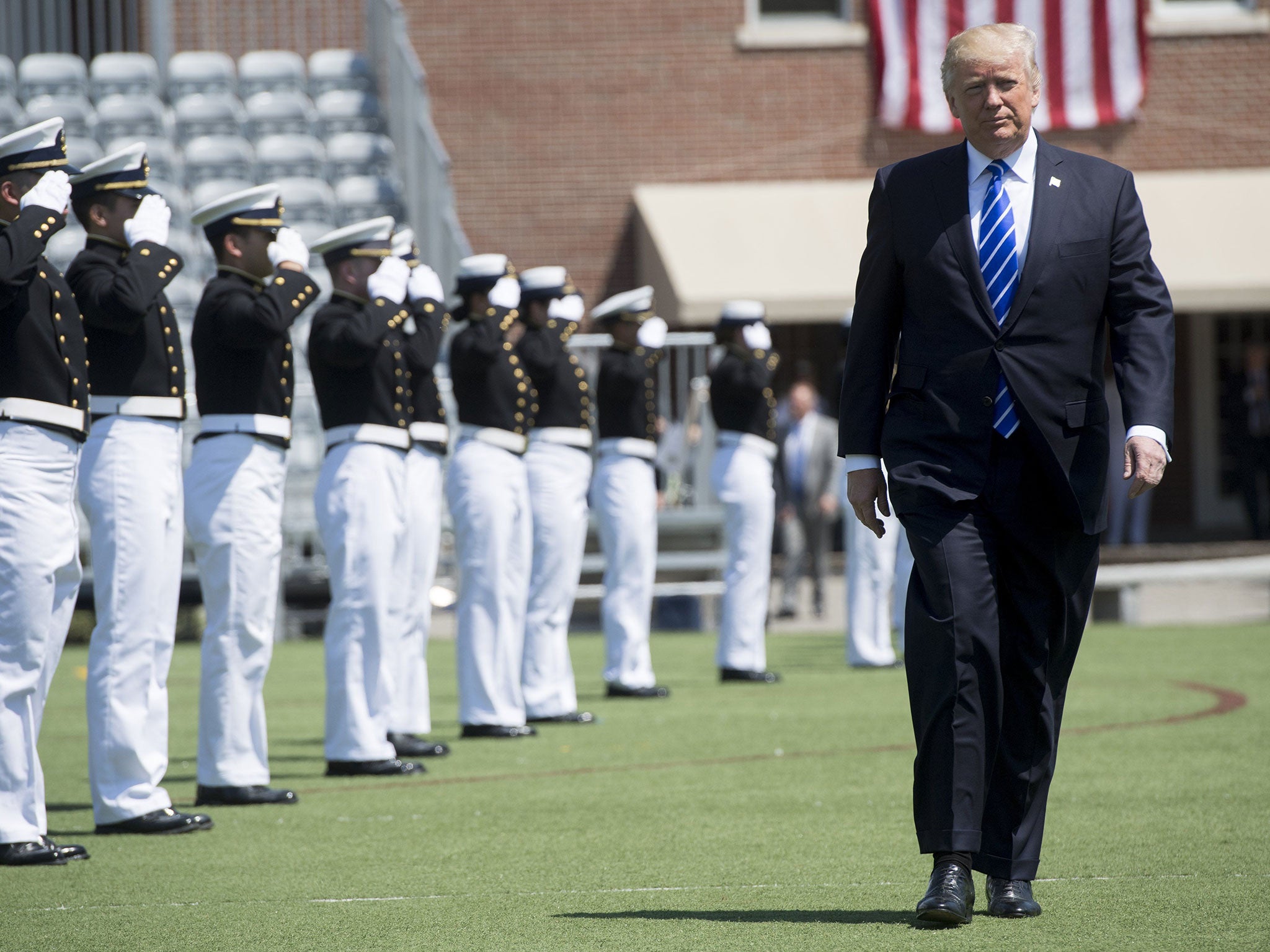While Emmanuel Macron is reshaping France, Donald Trump the 'man-child' is bringing America to a crisis point
Trump and Macron are a tale of two presidents, the best and worst that modern politics has to offer


Your support helps us to tell the story
From reproductive rights to climate change to Big Tech, The Independent is on the ground when the story is developing. Whether it's investigating the financials of Elon Musk's pro-Trump PAC or producing our latest documentary, 'The A Word', which shines a light on the American women fighting for reproductive rights, we know how important it is to parse out the facts from the messaging.
At such a critical moment in US history, we need reporters on the ground. Your donation allows us to keep sending journalists to speak to both sides of the story.
The Independent is trusted by Americans across the entire political spectrum. And unlike many other quality news outlets, we choose not to lock Americans out of our reporting and analysis with paywalls. We believe quality journalism should be available to everyone, paid for by those who can afford it.
Your support makes all the difference.This week may come to be seen as a moment when the American President, Donald Trump, and the French President, Emmanuel Macron, each began to move decisively towards their very different destinies, to the extremes of success and failure.
Both came from outside conventional politics to seize the highest office in the land. So today the one resides in the Élysée Palace while the other occupies the White House. As a result they will remain forever in the history books. Other than that, however, they share very few things in common.
Now many of us note every move that President Trump makes because his actions are often so extraordinary, but we should watch President Macron with equal attention. Yesterday, for instance, he announced the membership of his first government. It contains 12 men and 11 women, so there is virtual parity between the genders. In comparison the British Cabinet has 22 members, of which eight are women, including the Prime Minister. President Trump’s cabinet has four women out of its 25 members.
But what puts Macron into a class of his own is that he has formed what we would call a national government, that is one comprising members from each of the political parties. In Britain this happens only during wartime. Yet Macron’s cabinet list includes two members of the main part of the right, Les Républicains, plus three socialists and two members of Far Left parties.
He has also attracted the centre, with François Bayrou, becoming minister of justice. And finally, not least in significance, he has also drawn from civil society – a human relations specialist, a doctor, a university chief, a former Olympic champion and a well-known publisher.
While Macron is reshaping French politics, Trump is bringing American politics to a crisis point. On Tuesday, the US Senate Intelligence Committee invited the former FBI director James Comey to testify on reports that President Trump asked him to scuttle the investigation into Michael Flynn, the former national security adviser. And Representative Justin Amash, a Michigan Republican, added that if the allegations were true, they constituted grounds for impeachment.
Then came the devastating news that the Justice Department had appointed Robert Mueller, a former FBI director, as special counsel to oversee the investigation into ties between President Trump’s campaign and Russian officials. Trump had no warning of this decision.
Impeachment would be the classic remedy if the case against the President is convincing – but there is a growing body of opinion that argues that, because Trump is a sort of man-child, impeachment would be inappropriate. The New York Times columnist, Ross Douthat, has made this point.
He wrote that it “is a child who blurts out classified information in order to impress distinguished visitors. It is a child who asks the head of the FBI why the rules cannot be suspended for his friend and ally. It is a child who does not understand the obvious consequences of his more vindictive actions – like firing the very same man whom you had asked to potentially obstruct justice on your say-so.” Douthat’s fellow columnist, David Brooks, headed his column in the same edition, “When the World Is Led by a Child”.
Douthat argued that, instead of impeachment, the 25th Amendment to the United States Constitution, which deals with succession to the presidency, should be used. This allows for the removal of the president if a majority of the cabinet informs the Congress that he is “unable to discharge the powers and duties of his office” and (should the president contest his own removal) a two-thirds vote by Congress would confirm the cabinet’s judgement.
Macron’s constitutional innovations are of quite a different order. He sees a weak presidency, especially during the time of his predecessor François Hollande, who ended up with a 4 per cent approval rating. It has not lived up to the classic notion of being a position where the nation’s leader is able “to will, to decide and to act”. At the same time, he wants to revive what he calls the “vitality of French democracy”. Citizens should be able to make their voices heard. And, finally, he believes the left/right cleavage is outdated.
In short, while America struggles with its man-child President, France waits a bit apprehensively to see how far Macron intends to go in shaking up France’s constitutional arrangements. Macron may be the most important president since De Gaulle and Trump the most notorious since Nixon.
Join our commenting forum
Join thought-provoking conversations, follow other Independent readers and see their replies
Comments